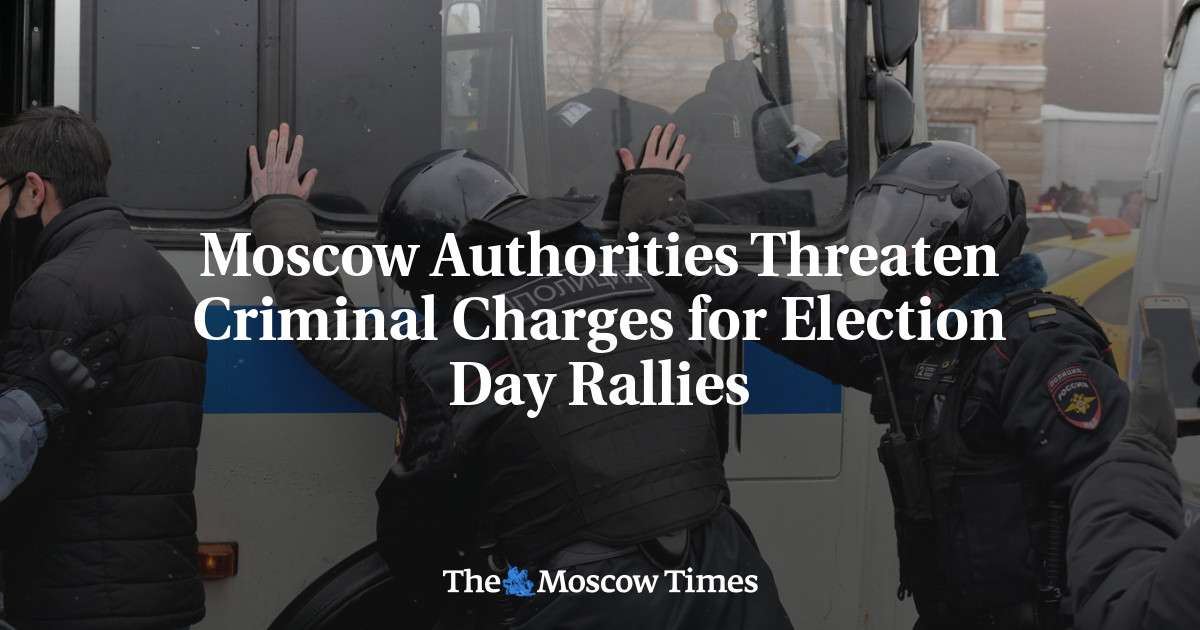
Moscow authorities have threatened to criminally prosecute those who take part in election-day rallies aimed at expressing opposition to President Vladimir Putin.
Supporters of late Kremlin critic Alexei Navalny are expected to go to polling stations at noon on Sunday — the final day of Russia’s presidential vote — to make a visible show of dissent in the absence of a viable opposition candidate.
The Moscow Prosecutor’s Office on Thursday said it had seen “publications on the internet” that called for “unauthorized mass events at polling stations” at 12:00 p.m. on March 17.
“The organization of and participation in these mass events are punishable by virtue of the legislation in place,” it said in a statement posted on Telegram.
It pointed to Article 141 of the Criminal Code, the obstruction of elections or citizens’ electoral rights, which is punishable by up to five years in prison.
Navalny’s widow, Yulia Navalnaya, called on voters to cast their ballot for any candidate besides Putin, spoil their ballot or simply stand at the polling place and boycott the vote in the “Noon Against Putin” action.
The campaign was also backed by opposition politicians including exiled Kremlin critic Mikhail Khodorkovsky and jailed opposition figure Vladimir Kara-Murza.
Maria Andreyeva, an activist from the Put’ Domoi (“Way Home”) movement of mobilized soldiers’ wives and mothers, received a warning from Moscow prosecutors after she reposted a video promoting the rally. The warning stated that the protest contained “signs of extremist activity.”
Election observers have started receiving leaflets listing recommendations on how to recognize if a voter is taking part in the “Noon Against Putin” rally, Stanislav Andreychuk, co-chairman of the independent election watchdog Golos, wrote on Thursday.
Any protest in Russia larger than one person must receive authorization in advance from local authorities. Authorities typically refuse to grant approval to opposition rallies.
Facing no real opposition on the ballot, Putin’s likely victory in the March 15-17 vote will allow him to remain in power until at least 2030.